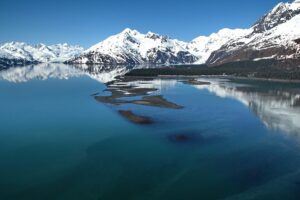Whale Watching for Seniors: Enjoying Nature at Any Age
Whale watching isn’t just for the young and adventurous; it’s a wonderful activity for people of all ages, including seniors. It’s a perfect blend of relaxation and excitement. For seniors, it offers a unique opportunity to connect with nature, enjoy the fresh sea air, and experience the awe-inspiring sight of whales up close.
Whether you’re a grandparent looking for a memorable outing with your grandchildren or a senior seeking a serene yet exhilarating experience, whale watching is an activity that transcends age.
Benefits of Whale Watching for Seniors
Whale watching offers a unique blend of relaxation and excitement, making it an ideal activity for seniors. Here are some of the key benefits that make whale watching a fantastic choice for older adults:
The Relaxing Nature of Whale Watching
- Peaceful Sea Experience:
- Being out on the water has a naturally calming effect. The gentle rocking of the boat and the rhythmic sound of the waves create a soothing environment that can be very relaxing.
- The vastness of the ocean and the open sky provide a sense of tranquility and freedom, offering a break from the hustle and bustle of everyday life.
- Stress Reduction:
- Watching the serene movements of whales and other marine life has been shown to reduce stress and promote a sense of well-being.
- The experience of being in nature and away from daily stressors can have a therapeutic effect, helping to lower anxiety and improve mood.
Gentle Yet Exciting Connection with Nature
- Gentle Adventure:
- Whale watching is a low-impact activity that doesn’t require strenuous physical effort, making it suitable for seniors with varying levels of mobility.
- The thrill of spotting a whale is an exhilarating experience without physical strain, making it a perfect blend of gentle yet exciting.
- Close Encounters with Marine Life:
- The opportunity to see these magnificent creatures up close is a powerful way to connect with nature.
- Observing whales in their natural habitat fosters a deeper appreciation for the marine environment and its inhabitants.
Opportunity to learn and experience something New
- Educational Experience:
- Whale-watching trips often include commentary from knowledgeable guides who provide interesting facts about whales and their ecosystems.
- This educational aspect makes the trip enjoyable and informative, offering a chance to learn about marine biology, conservation, and the specific behaviors of different whale species.
- New Experiences and Memories:
- For many seniors, whale watching can be a novel experience, different from usual activities.
- It offers an opportunity to create new memories, whether it’s a solo adventure, a trip with a partner, or a family outing with grandchildren.
Whale watching for seniors is more than just an activity; it’s an enriching experience that combines the tranquility of the sea with the excitement of wildlife observation. It provides a gentle yet thrilling way to connect with nature while also offering opportunities for learning and experiencing something new. This makes it an ideal activity for seniors looking to enjoy the beauty of nature in a relaxed and comfortable setting.
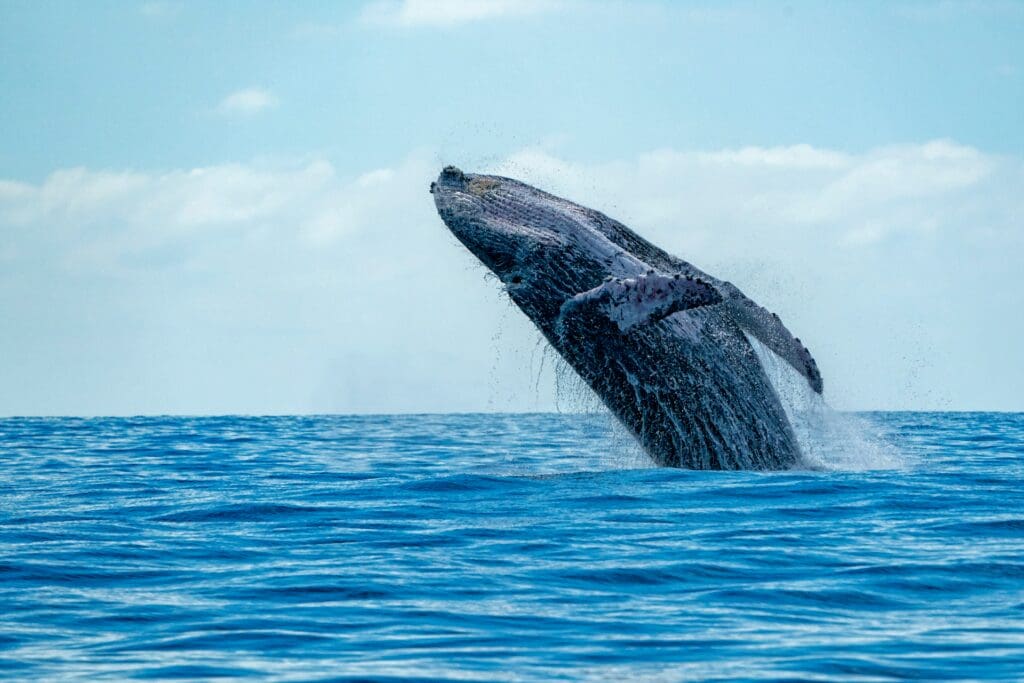
Choosing the Right Whale Watching Tour for Seniors
Selecting the right whale-watching tour is crucial, especially for seniors, to ensure a comfortable and enjoyable experience. Here are some tips and considerations to keep in mind when choosing a senior-friendly whale-watching tour:
Tips on Selecting Senior-Friendly Whale Watching Tours
- Research Tour Companies:
- Look for companies with good reviews, especially from seniors or families with positive experiences.
- Check if the tour company specializes in or is experienced in catering to seniors.
- Inquire About Group Size:
- Smaller group sizes often mean a more personalized experience and easier mobility on the boat.
- A less crowded boat allows for better viewing opportunities and a more relaxed atmosphere.
- Check for Senior Discounts:
- Many tour companies offer discounts for seniors, so be sure to ask about any available concessions.
Considerations for Comfort and Safety
- Boat Accessibility:
- Ensure the boat is easily accessible for seniors. This includes minimal steps, stable boarding processes, and the availability of handrails.
- Ask about seating arrangements and whether there is an option for covered or indoor seating in case of harsh weather.
- Duration of the Tour:
- Consider the length of the tour. Shorter tours might be more suitable for those who may find longer durations on the water uncomfortable.
- Check if restrooms are available on the boat, which is an important comfort factor for longer trips.
- Stability and Safety of the Vessel:
- Larger boats may offer more stability and comfort, especially in choppier waters.
- Confirm that the vessel is equipped with safety features and that the crew is trained in safety procedures.
- Medical Considerations:
- If there are specific medical needs, discuss these with the tour company beforehand to ensure they can be accommodated.
- It’s advisable to bring any necessary medications and inform the crew of potential medical concerns.
- Weather and Sea Conditions:
- Check the weather forecast and sea conditions for the day of your trip. Calmer seas are preferable for a comfortable experience.
- Some companies may offer the flexibility to reschedule if the weather is unfavorable.
Considering these factors, seniors can choose a whale-watching tour that meets their needs for comfort and safety and provides an enjoyable and memorable experience. The right tour can make all the difference, ensuring that the whale-watching adventure is a highlight of their nature explorations.
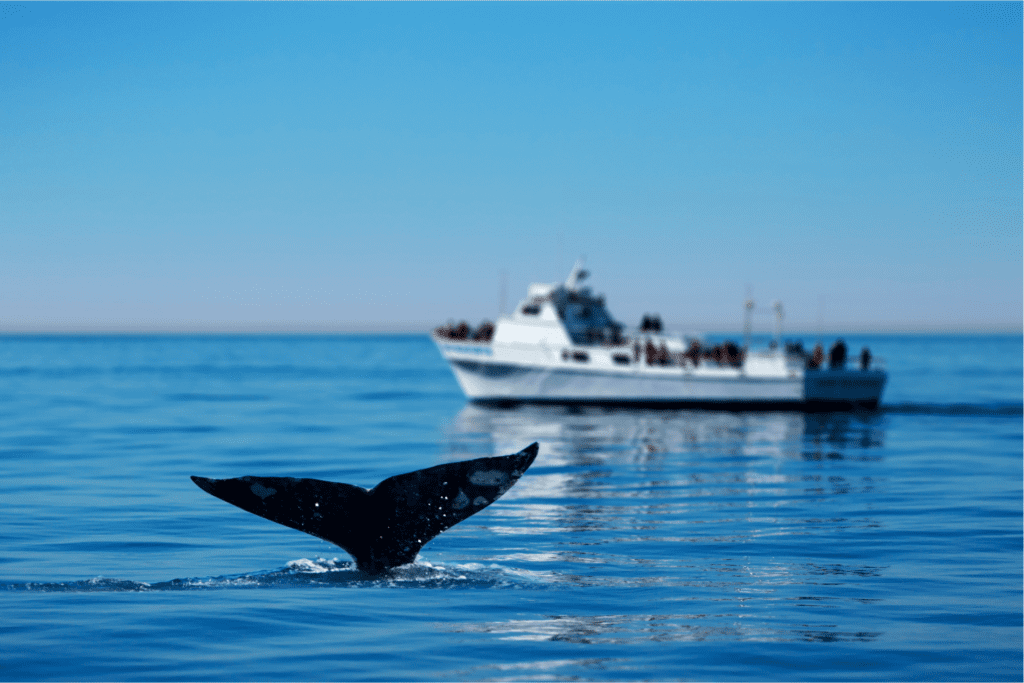
What to Expect on a Whale-Watching Trip
Embarking on a whale-watching trip is an adventure filled with anticipation and wonder. Here’s what you can typically expect from this experience and the types of marine life you might encounter.
The Whale Watching Experience
- Setting Sail:
- The journey begins as the boat sets sail from the harbor, heading towards areas known for whale activity. The fresh sea air and the expanse of the ocean set the stage for an exciting day.
- Searching for Whales:
- As the boat cruises, the crew and passengers look for signs of whales. This might include watching for spouts (water sprayed from a whale’s blowhole), tail slaps, or breaches.
- Observing Whales:
- Once whales are spotted, the boat will slow down and maintain a respectful distance, allowing everyone on board to observe these magnificent creatures. You might see them swimming, diving, or even breaching out of the water.
- Educational Commentary:
- Most tours are accompanied by knowledgeable guides who provide fascinating insights about the whales and their behaviors. This educational aspect adds depth to the experience.
- Duration of the Trip:
- The length of whale-watching tours can vary, typically ranging from a couple of hours to half a day. This gives ample time to enjoy the experience without feeling rushed.

Types of Whales and Marine Life
- Different Whale Species:
- Depending on the location and season, you might see various species of whales. These can include humpback whales, known for their acrobatic breaches; blue whales, the largest animals on earth; or orcas, also known as killer whales, which are actually a type of dolphin.
- Other Marine Animals:
- In addition to whales, it’s common to spot other marine life, such as dolphins, seals, sea lions, and various seabirds. Each adds to the richness of the marine ecosystem you’re witnessing.
- Seasonal Variations:
- The whales and marine life species you see can vary with the seasons. Some species migrate, so certain times of the year might offer higher chances of sightings.
- Natural Behaviors:
- Witnessing the natural behaviors of these animals in their habitat is a highlight. From the gentle glide of a whale beneath the water’s surface to the playful antics of dolphins, these moments are truly captivating.
For seniors and nature enthusiasts alike, it’s an opportunity to witness the majesty of the marine world in a way that is both respectful and awe-inspiring.
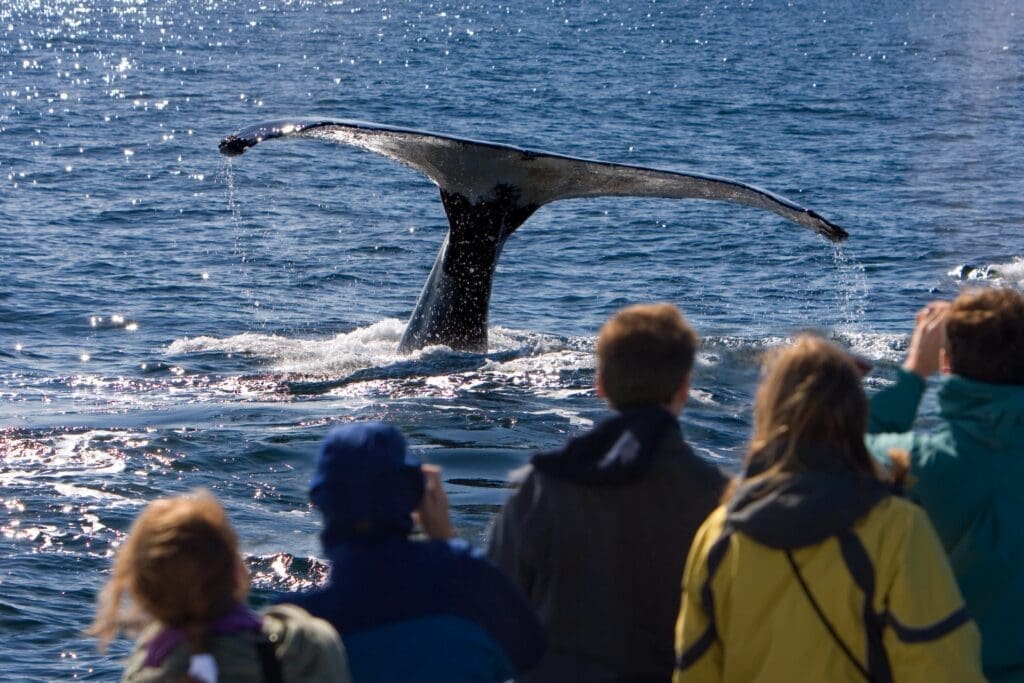
Making the Most of the Whale Watching Experience
Proper preparation ensures your whale-watching trip is as enjoyable and comfortable as possible. Here are some suggestions and tips to help you make the most of your whale-watching experience.
Preparing for the Trip
- Appropriate Clothing:
- Dress in layers. The temperature can vary significantly between the shore and the open sea. Having layers allows you to adjust to changing conditions.
- Wear a waterproof or windproof jacket. It can get breezy and cool out on the water even on sunny days.
- Opt for comfortable, non-slip footwear. The deck can get wet and slippery, so shoes with good traction are essential.
- Sun Protection:
- Bring sunscreen, even on cloudy days. The sun’s rays can be strong and reflective off the water.
- Wear a hat with a brim to protect your face and neck from the sun.
- Sunglasses are a must to protect your eyes and improve visibility, especially on bright days.
Tips on Staying Comfortable and Enjoying the Trip
- Bring Binoculars:
- A pair of binoculars enhances the experience, allowing you to see whales and other marine life more clearly, especially if they are a bit distant.
- If you don’t own binoculars, check if the tour company provides them or rents them out.
- Use a Camera:
- Bring a camera to capture the moments. Whether it’s a smartphone or a more advanced camera, you’ll want to take photos or videos of your experience.
- Consider a strap for your camera or phone to secure it, as the boat can rock.
- Stay Hydrated and Snack Wisely:
- Bring water and stay hydrated throughout the trip. The sea air and sun can be dehydrating.
- Pack light snacks, preferably something that is not too heavy or greasy, to keep your energy up without upsetting your stomach.
- Motion Sickness Precautions:
- If you’re prone to motion sickness, take preventative measures. This could include over-the-counter remedies or natural options like ginger candies.
- Staying on the lower deck and focusing on the horizon can also help mitigate seasickness.
- Choose a Good Spot on the Boat:
- Find a spot with a good view and where you feel most comfortable. The front of the boat can offer great views but might be bumpier.
- Don’t worry about staying in one spot; you can move around as the boat changes direction and follows the whales.
By following these suggestions, you can enhance your whale-watching experience, making it comfortable and truly memorable. Remember, the key is to be prepared, stay comfortable, and be ready to enjoy the magnificent spectacle of whales in their natural environment.
Best Locations for Whale Watching for Seniors
When it comes to whale watching, choosing a location that is both scenic and accessible for seniors is important. Here are some top recommendations that offer comfort, accessibility, and fantastic whale-watching opportunities.
Recommended Whale Watching Locations for Seniors
- Monterey Bay, California:
- Why It’s Special: Monterey Bay is renowned for its rich marine life and is a prime spot for whale watching year-round. The bay’s calm waters are ideal for seniors, and the area is known for sightings of humpback whales, blue whales, and orcas.
- Accessibility: The area has several tour operators with boats equipped for accessibility, ensuring comfort for seniors.
- Cape Cod, Massachusetts:
- Why It’s Special: Cape Cod offers some of the best whale watching on the East Coast, especially for seeing humpback whales. The area’s natural beauty and the chance to see whales feeding make it a memorable destination.
- Accessibility: Many tours in this region cater to various ages and mobility levels, with comfortable boats and amenities.
- Victoria, British Columbia, Canada:
- Why It’s Special: Victoria is a gateway to the beautiful waters of the Pacific Northwest, known for its resident orca populations. The serene setting and the likelihood of seeing these majestic creatures make it a top choice.
- Accessibility: The city’s whale-watching tours are known for their high standards of comfort and safety, with several options suitable for seniors.
- Maui, Hawaii:
- Why It’s Special: Maui is a paradise for whale watchers, particularly in winter when humpback whales migrate to the warm waters. The scenic beauty of the Hawaiian Islands adds to the experience.
- Accessibility: Tours in Maui often offer spacious boats with amenities catering to older adults’ comfort.
- Reykjavik, Iceland:
- Why It’s Special: For a more adventurous destination, Reykjavik offers the chance to see minke and humpback whales amidst stunning Icelandic scenery. The summer months provide long daylight hours for extended viewing opportunities.
- Accessibility: Tours from Reykjavik are known for their professionalism and often provide all the necessary gear and comfort for a pleasant experience, even in cooler weather.
- Hervey Bay, Australia:
- Why It’s Special: Known as the whale-watching capital of Australia, Hervey Bay offers calm waters and close encounters with humpback whales. It’s a tranquil spot with a friendly, laid-back atmosphere.
- Accessibility: The tours here are tailored to provide comfort and ease, with many operators offering boats that are accessible and senior-friendly.
Each of these locations offers something special for senior whale watchers – from the calm, bountiful waters of Monterey Bay to the exotic allure of Reykjavik. What makes them ideal for seniors is not just the spectacular whale-watching opportunities but also their commitment to accessibility and comfort, ensuring that everyone, regardless of age, can enjoy the magnificent experience of connecting with nature and witnessing the grandeur of whales.
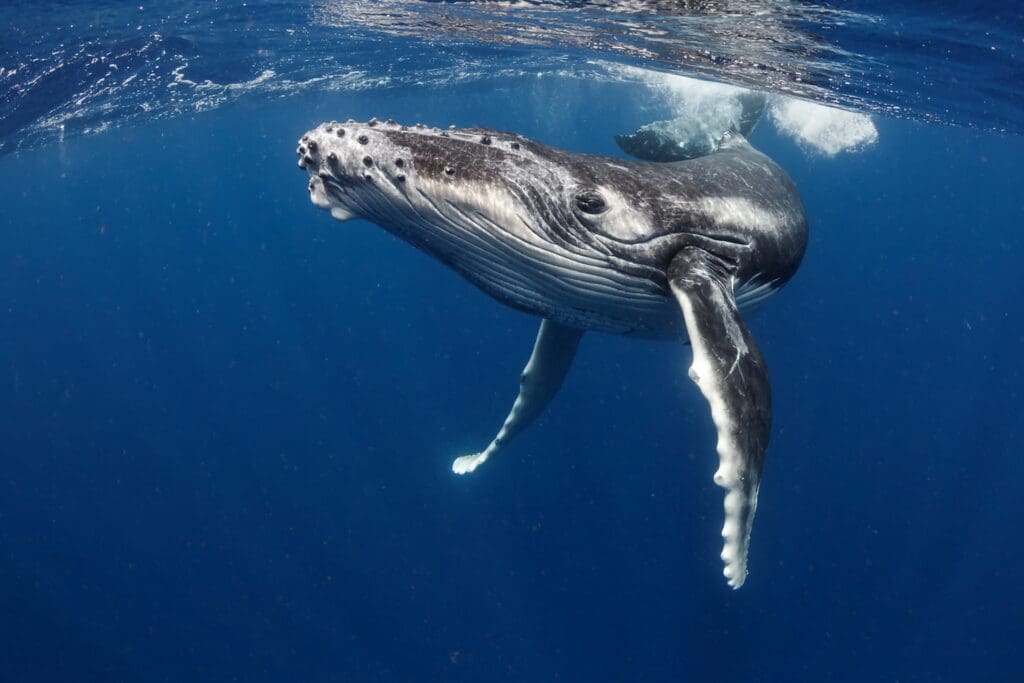

Whale Watching as a Social Activity
Whale watching is not just an opportunity to connect with nature but also a wonderful social activity, especially for seniors. This engaging experience can be enjoyed with friends, family or as part of a community group, making it a delightful social outing.
The Social Benefits of Whale Watching for Seniors
- Shared Experiences:
- Participating in a whale-watching tour with peers or family members creates shared experiences that are both enriching and memorable. It’s an opportunity to bond over the excitement of spotting whales and enjoying the beauty of the ocean together.
- These shared moments can lead to lively discussions, shared laughter, and the creation of lasting memories, enhancing social connections.
- Meeting New People:
- Whale-watching tours often bring together individuals from diverse backgrounds. This setting provides a great opportunity for seniors to meet new people and engage in conversations, fostering new friendships.
- The common interest in nature and marine life can be a great conversation starter, making it easier for seniors to socialize and interact with fellow passengers.
Group Tours and Community Trips
- Group Tours:
- Many tour operators offer group tours, which can be an excellent option for senior centers, clubs, or groups of friends. These tours can sometimes be customized to suit the needs and preferences of the group.
- Being part of a group tour often adds a sense of camaraderie to the experience. It also can provide a sense of security and comfort, knowing you are with familiar faces.
- Joining Community Trips:
- Seniors can also join community trips organized by local clubs, senior centers, or recreational groups. These trips are often well-planned and consider the needs of seniors, making the experience stress-free and enjoyable.
- Participating in community trips is a great way for seniors to stay active and engaged in their community. It encourages social interaction and can be particularly beneficial for those looking to expand their social circle.
- Family Outings:
- Whale watching is also a wonderful activity for multi-generational family outings. It allows seniors to share an exciting educational experience with their children and grandchildren, fostering family bonding.
- Such outings can be particularly special, as they allow seniors to impart knowledge and share their love for nature with the younger generation.
It’s not just about the thrill of seeing whales; it’s about the joy of sharing that experience with others, whether it’s with old friends, new acquaintances, or family members. It’s an activity that combines adventure, learning, and social interaction, making it a fulfilling experience for seniors looking to stay active, social, and connected.
Additional Resources:
Conclusion
We encourage readers of all ages, especially seniors, to embrace the wonder of whale watching. It’s an activity that transcends age barriers, offering a blend of relaxation, education, and excitement. It’s about feeling the fresh sea breeze, witnessing the dance of whales in the ocean, and experiencing the vastness of nature in a way that is both awe-inspiring and accessible.
So, set sail on a journey that promises sightings of the ocean’s giants and moments of joy, wonder, and connection. Whale watching is more than an activity; it’s an experience that enriches life, and it’s waiting for you to discover its many joys.






